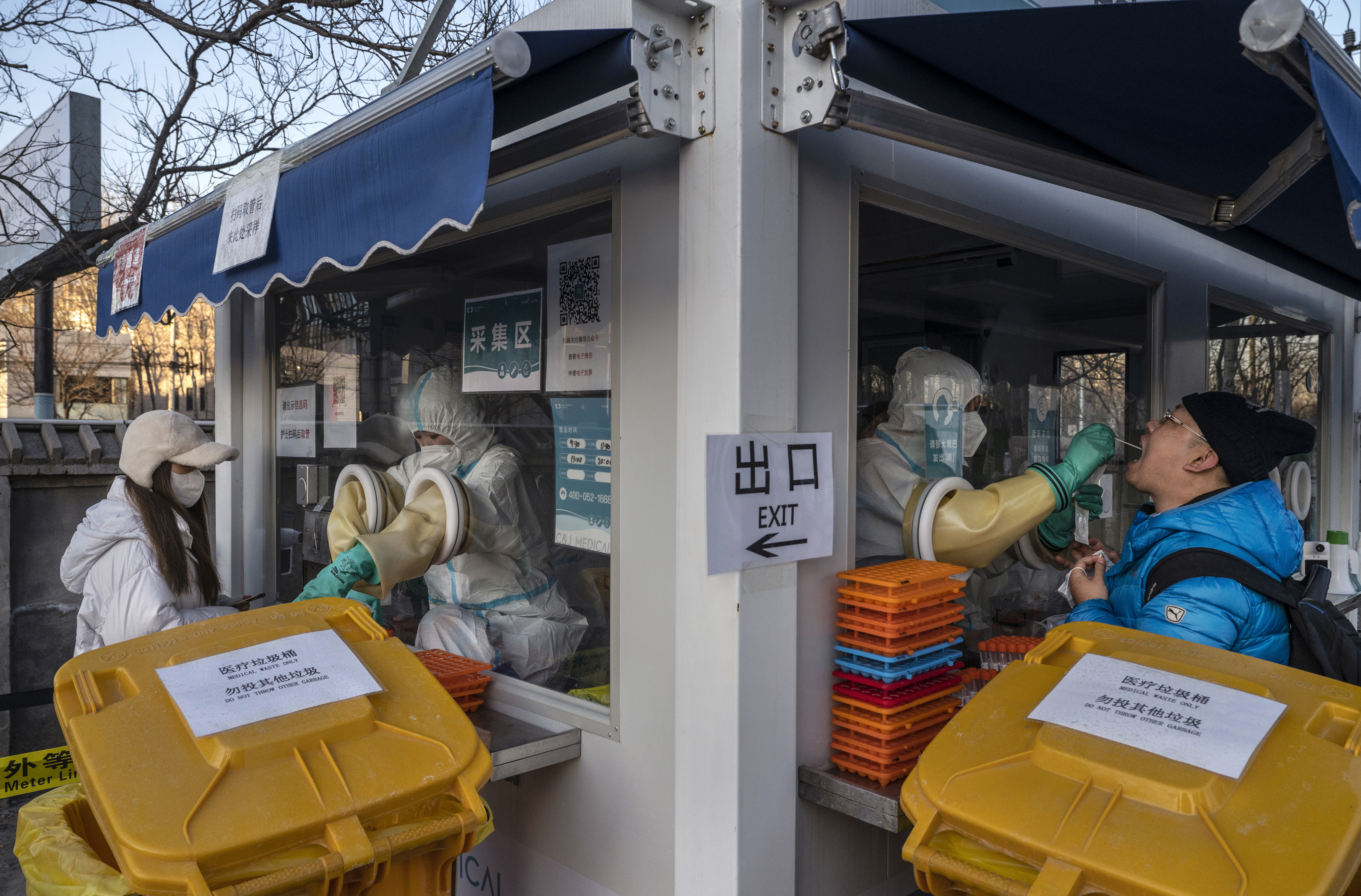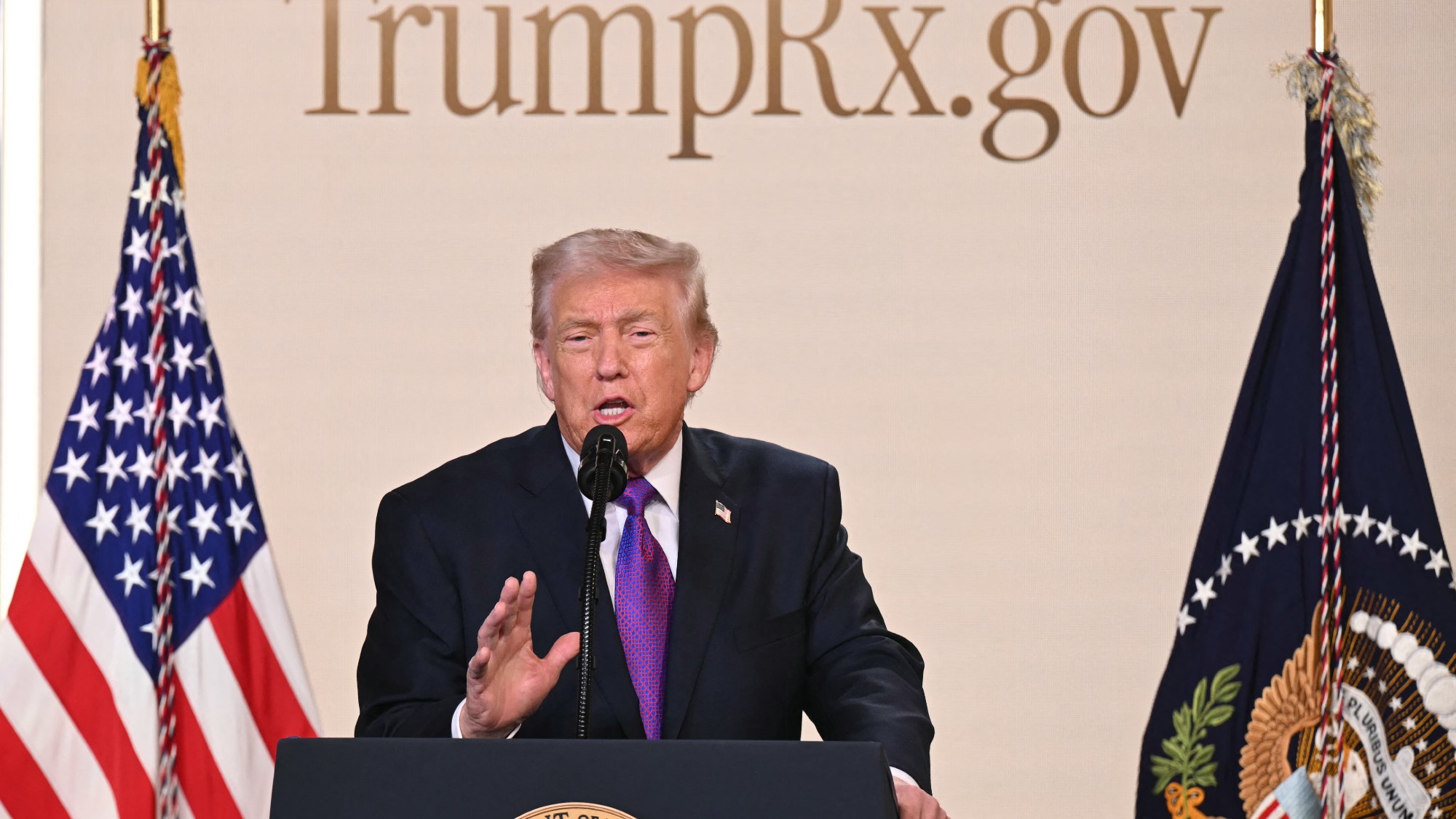Beijing’s ‘zero-Covid’ policy: a dangerous dead end?
The situation is potentially disastrous – particularly with the lunar New Year celebrations next month

A free daily email with the biggest news stories of the day – and the best features from TheWeek.com
You are now subscribed
Your newsletter sign-up was successful
China’s “zero-Covid” policy is taking an “immense” toll on its population, said Jessie Yeung on CNN (Atlanta) – nowhere more so than in Xian. The city of 13 million people in central China has been under strict lockdown since 23 December, as it tries to contain the country’s worst Covid outbreak since the pandemic began in Wuhan.
In recent weeks, social media has been filled with horror stories from Xian, which has recorded around 2,000 cases since 9 December. Residents say they cannot access “food, basic supplies, even medical care”. In one case, a pregnant woman suffered a miscarriage after being turned away from hospital for not having an up-to-date negative test.
Another woman said her father died after emergency surgery for a heart attack was delayed because he lived in a “medium-risk” area of the city. Many have been reduced to bartering as they struggle to get hold of food distributed by the government. The situation has led to an unusual outpouring of anger and frustration online. “Covid-19 might not kill you,” read one typical post, “but bureaucrats can.”
The Week
Escape your echo chamber. Get the facts behind the news, plus analysis from multiple perspectives.

Sign up for The Week's Free Newsletters
From our morning news briefing to a weekly Good News Newsletter, get the best of The Week delivered directly to your inbox.
From our morning news briefing to a weekly Good News Newsletter, get the best of The Week delivered directly to your inbox.
Beijing’s Covid policy – officially dubbed “dynamic zero” – has been a centrepiece of its pandemic response, said Jing Xuan in Japan Today (Tokyo). Officials have ruthlessly clamped down on outbreaks, instigating strict mass-testing regimes wherever new cases emerge, and enforcing tight border controls. That has prevented its healthcare system – which has limited intensive care bed capacity compared to those of richer nations – from being overrun.
It has been highly effective at protecting our 1.4 billion citizens, said China’s state-owned Global Times (Beijing). More than 30 local outbreaks have been controlled. And China’s total reported death toll of 5,699 is minuscule when compared to those of nations like the US, where over 800,000 have died from Covid.
The problem, said George Calhoun in Forbes (Jersey City), is that China’s claims about its death rate just aren’t credible. Other Asian countries like Japan and South Korea have adopted similarly draconian tactics to contain the virus. Yet even the population-adjusted mortality rates in those nations are between 30 and 50 times higher than China claims its own is.
The important question now is what China does next, said Josephine Ma in the South China Morning Post (Hong Kong). Most countries have ditched zero-Covid policies and are relying on jabs and infection-acquired immunity to protect people. But China’s strict approach to past outbreaks means its population has little natural immunity, and its Sinovac jab seems to offer weaker protection against Omicron than mRNA jabs such as Pfizer’s, leaving its people exposed to the highly transmissible new variant.
A free daily email with the biggest news stories of the day – and the best features from TheWeek.com
The situation is potentially disastrous – particularly as the lunar New Year celebrations will bring mass travel next month, when the nation is also hosting the Winter Olympics. China needs an “exit strategy” from zero-Covid, said Katrin Büchenbacher in Neue Zürcher Zeitung (Zürich). It only really has two choices: it can approve a foreign mRNA jab (or swiftly develop one of its own) and hope a booster campaign confers sufficient immunity; or it can continue with the “intolerable” lockdowns.
-
 Climate change is creating more dangerous avalanches
Climate change is creating more dangerous avalanchesThe Explainer Several major ones have recently occurred
-
 What’s TrumpRx and who is it for?
What’s TrumpRx and who is it for?The Explainer The new drug-pricing site is designed to help uninsured Americans
-
 ‘If you’re confused, you’re not the only one’
‘If you’re confused, you’re not the only one’Instant Opinion Opinion, comment and editorials of the day
-
 The mystery of Malaysia Airlines flight MH370
The mystery of Malaysia Airlines flight MH370The Explainer In 2014, the passenger plane vanished without trace. Twelve years on, a new operation is under way to find the wreckage of the doomed airliner
-
 Corruption: The spy sheikh and the president
Corruption: The spy sheikh and the presidentFeature Trump is at the center of another scandal
-
 Putin’s shadow war
Putin’s shadow warFeature The Kremlin is waging a campaign of sabotage and subversion against Ukraine’s allies in the West
-
 The fall of the generals: China’s military purge
The fall of the generals: China’s military purgeIn the Spotlight Xi Jinping’s extraordinary removal of senior general proves that no-one is safe from anti-corruption drive that has investigated millions
-
 Epstein files topple law CEO, roil UK government
Epstein files topple law CEO, roil UK governmentSpeed Read Peter Mandelson, Britain’s former ambassador to the US, is caught up in the scandal
-
 Iran and US prepare to meet after skirmishes
Iran and US prepare to meet after skirmishesSpeed Read The incident comes amid heightened tensions in the Middle East
-
 Syria’s Kurds: abandoned by their US ally
Syria’s Kurds: abandoned by their US allyTalking Point Ahmed al-Sharaa’s lightning offensive against Syrian Kurdistan belies his promise to respect the country’s ethnic minorities
-
 Israel retrieves final hostage’s body from Gaza
Israel retrieves final hostage’s body from GazaSpeed Read The 24-year-old police officer was killed during the initial Hamas attack